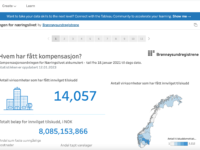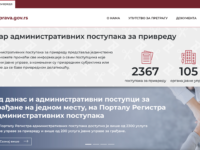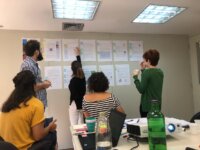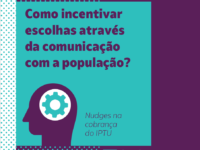The Office of the Prime Minister of the Government of Kosovo, together with GIZ in Kosovo and Innovation Centre Kosovo (ICK) have developed the Civil Service Innovation Program for Implementation of the Stabilization and Association Agreement (Gov4SAA). The program enables civil servants to identify a challenge and then design a solution in the form of innovative products or services to be used by citizens, government, and other relevant stakeholders.
Case Study Library
Where innovations are collected and shared to disseminate and replicate good ideas

Innovations:
0
This website, as well as any data and map included herein, are without prejudice to the status of or sovereignty over any territory, to the delimitation of international frontiers and boundaries and to the name of any territory, city or area.
To accommodate the growing foreign talent pool in Vilnius and support the city’s economic development, the Lithuanian Government established a unique one-stop-shop style service centre for foreign talent. Specialists representing various important state institutions gather in one place to provide services to foreign talent relocating to Vilnius. This is the first centre of its kind in Lithuania and comes as a great relief for foreigners while improving Lithuania’s image and increasing its…
Case Study
‘Performing and Visual Arts’ Ambedkar Schools of Specialized Excellence (ASoSE): Mainstreaming…
Performing and Visual Arts ASoSE(s) represents India’s first bold endeavour to reimagine secondary education that currently offers students only 3 pathways. This innovative public school model offers learning in ‘Music’, ‘Visual Arts’ and ‘Filmmaking Acting and Media Studies’ for low-income students with creative aptitude/interests. They empower students with artistic interests to unlock aspirational higher-ed and career pathways in the creative field of their choice alongside…
Aware of the ongoing digital transformation and user needs, HRDKorea (Human Resources Development Service of Korea)partnered with the private sector to leverage industry-leading technology for the creation of the Mobile National Technical Qualification Service. The certificate layout was fully reconfigured to fit the smartphone environment and used blockchain technology to develop a service that now allows users to immediately access their certificates on their mobile phones. The previous model…
The Intergovernmental Network and Competition for regulatory reform was designed to provide a driving force for regulatory reform and for mutual learning between local governments. It moves away from existing top-down regulatory innovation and rather motivates bottom-up regulatory reform policy, enables mutual learning of best practices, and allows local governments to benefit. Also, the final beneficiaries of the Network are citizens and businesses, as when regulatory innovation increases, so…
The digital compensation scheme was created to support Norwegian businesses to endure the financial consequences of the Covid-19 pandemic. The scheme designed was quick, efficient, and can be relaunched when needed. Checks are done before the disbursement, which minimizes the need for verification afterwards and also prevents misconduct. Applications are approved by an auditor, and then automatically processed and checked against information from a variety of sources and registers. Information…
Bureaucracy in Jakarta faced 3 main problems: scattered and unstandardized data, siloed systems, and unintegrated services; making public services inefficient and costly, eventually decreasing public service quality. Jakarta Capital City Government addressed the mentioned challenges through JAKI, a Super-App that integrates services by unifying Jakarta’s bureaucracies and data in one digital ecosystem that prioritises citizen participation in overcoming city problems. JAKI is a one-stop…
Citizens and businesses often face complex, expensive and non-transparent procedures in order to acquire licenses, permits or certificates, or to fulfill their obligation(s). To solve this issue, the Register of Administrative Procedures (RAP) and its public portal provide information about more than 2300 procedures for citizens and businesses within competences of more than 90 authorities in Serbia – all in one place. It makes public services easy, transparent, predictable and accessible…
The language in the Brazilian public sector carries a history of being complex, full of acronyms, technical terms, etc. This, at times, means that the population is unable to understand the language used by the government. The Simple Language Programme is the first Brazilian public policy aimed at simplifying the language of government, enabling public servers to communicate more simply and supporting the simplification of documents.
In this project, São Paulo City Hall tested and evaluated the reformulation of collection instruments taking into account behavioral aspects. Currently the relationship between the City Hall and taxpayers is based on repressive inspections, difficult to understand communications and complex flows of payments. With the reformulation of how the IPTU is collected, this increased the municipal tax collection by R $ 60 million/ year. Further experiments have allowed for the estimation that an…







